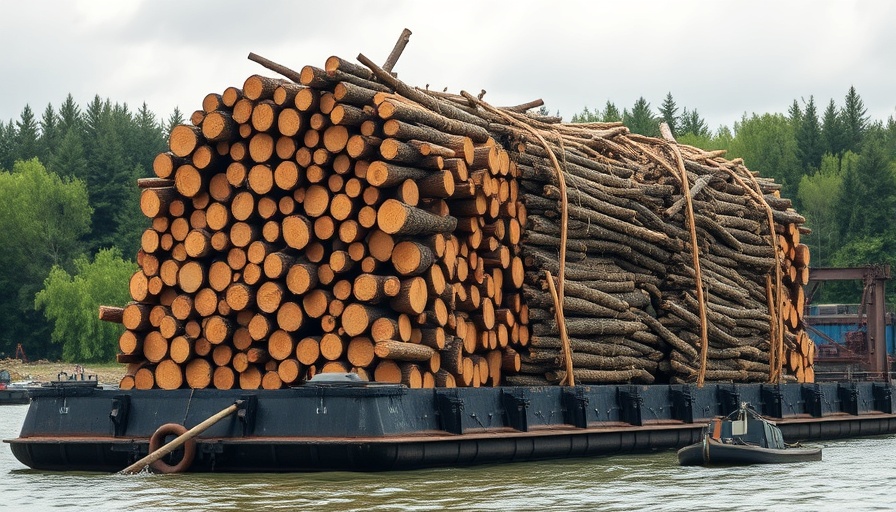
Indonesia’s Nickel Mining: A Double-Edged Sword
As the largest producer of nickel in the world, Indonesia plays an indispensable role in the electric vehicle (EV) revolution. In 2023 alone, the country produced approximately 2.2 million tonnes of nickel, accounting for nearly 60 percent of global output. This demand surge is partly driven by the need for cleaner energy solutions, as more nations shift towards green technology and away from fossil fuels. However, the cost at which this progress comes is both alarming and profound.
Environmental Conservation vs. Economic Growth
While boosting the economy, Indonesian nickel mining has dire consequences for its already fragile ecosystems. Environmental activists argue that nickel extraction has led to significant deforestation and habitat destruction. Reports indicate that mining activities have caused the loss of 193,830 hectares of forest, alongside additional land clearing for smelter development. This colossal environmental impact raises critical questions about the sustainability of such rapid industrial growth.
What’s Driving Global Demand?
According to the International Energy Agency (IEA), the demand for EV batteries is on the rise, with a notable 25 percent increase anticipated between 2023 and 2024. With nickel now comprising 10 percent of battery compositions, compared to just 2 percent in 2017, countries are scrambling to secure reliable sources of this critical mineral. While the global transition to renewable energy is necessary for combating climate change, the increasing reliance on nickel has far-reaching ecological consequences.
Mining Techniques: A Necessary Evil?
Indonesia’s predominantly open-pit mining methods are economically appealing—rock layers containing nickel are close to the surface—this technique carries substantial environmental risks. The removal of topsoil leads to deforestation, soil degradation, and water pollution, as stated in a recent study published in the Sustainability journal. Given that these practices threaten biodiversity one cannot help but ask: is preserving our planet worth sacrificing short-term economic gains?
Broader Implications for Biodiversity
The rapid expansion of nickel mining operations not only follows the demand for EV batteries but also threatens the local biodiversity unique to Indonesia. Rich rainforests, coastal mangroves, and the variety of life forms depend on these natural resources. The acceleration towards mineral exploitation calls into question the long-term viability of Indonesia's ecosystems.
Emerging Solutions for Sustainability
As concerns over environmental damage grow, some propose more sustainable mining practices. These include incorporating renewable energy sources and implementing better waste management strategies. Businesses focused on sustainable practices are gaining traction. Embracing eco-friendly alternatives, such as battery recycling, can help minimize the ecological footprint of nickel extraction.
What Can You Do?
For individuals keen on sustainability, supporting eco-friendly products and communities promoting green initiatives is essential. Engaging in ethical consumerism—choosing brands committed to environmentally friendly practices—can contribute to a sustainable future. Collective action makes a tangible impact. Voting for policies that prioritize environmental conservation can influence corporate behaviors towards responsible sourcing of materials.
Final Thoughts on Ethical Consumption
Understanding the broader implications of Indonesia’s nickel mining is crucial for informed decision-making as consumers and stakeholders. As the demand for EVs continues to rise, so too will the associated environmental costs. Cultivating knowledge about sustainability practices and making conscious choices can lead to a more ethically aware society focused on minimizing our carbon footprint and preserving biodiversity for future generations.
Consider advocating for sustainable mining practices and supporting legislation that incentivizes environmental conservation efforts. Sustainable living today can ensure that tomorrow's resources are available for generations to come.
 Add Row
Add Row  Add
Add 



Write A Comment